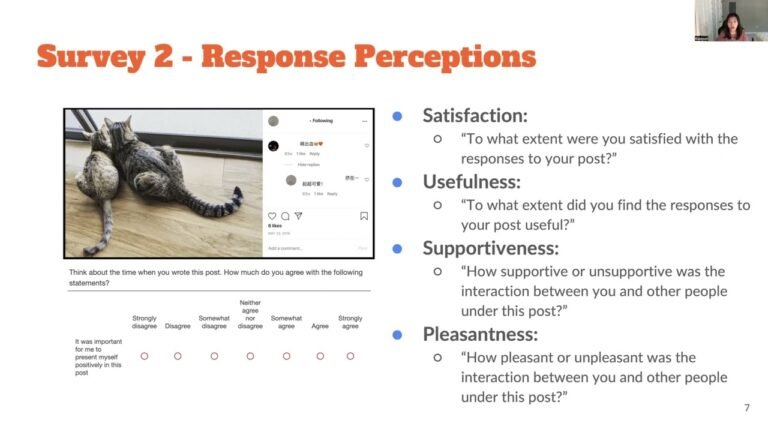Methodist Church vs Catholic: Key Differences Explained
The debate between the Methodist Church and the Catholic Church highlights significant differences in theology, practices, and governance that have shaped the Christian landscape. While both denominations share a foundation in Christianity, their distinct beliefs about salvation, sacraments, and church authority often lead to profound discussions among followers and scholars alike. Understanding these contrasts not only deepens one’s appreciation for each tradition but also illuminates the broader complexities of faith in a diverse world.
What are the main differences between Methodism and Catholicism?
Methodism emphasizes personal faith and social justice, while Catholicism focuses on sacraments and church authority. Both share core Christian beliefs but differ in practices and governance.
What distinguishes Methodism from Catholicism?
The Catholic Church views itself as the singular institution established by Jesus Christ, emphasizing its role as essential for salvation. This belief is rooted in the idea of apostolic succession and the sacraments, which are seen as vital for spiritual life and redemption. Consequently, the Catholic faith teaches that participation in the Church’s sacraments is necessary for a true relationship with God.
In contrast, Methodists hold that faith in Jesus Christ is fundamental for salvation, but they do not see their denomination as a requirement for it. They emphasize a personal relationship with God and the assurance of salvation, allowing individuals to recognize their own salvation through faith. This difference reflects a broader theological divergence, with Methodists promoting a more individualistic approach to faith compared to the communal and sacramental focus of Catholicism.
How well do Methodists and Catholics coexist?
In recent years, Methodists and Catholics have made significant strides in fostering a spirit of collaboration and understanding. This transformation has led to the development of new relationships that prioritize mutual love and respect, moving away from the indifference and hostility that once characterized their interactions. Both communities are increasingly finding common ground, focusing on shared values rather than past differences.
This shift has encouraged a more open dialogue, allowing for meaningful conversations that replace polemics with respect and suspicion with trust. As Methodists and Catholics engage with one another, they are not only building bridges but also enriching their faith experiences. Together, they are paving the way for a more harmonious coexistence that celebrates their unique identities while recognizing their shared commitment to service and compassion.
Which religion is most similar to Methodism?
Methodism is closely aligned with Anglicanism, sharing a rich liturgical heritage that emphasizes structured worship and communal practices. This connection stems from the roots of Methodism, which was founded by John Wesley, an Anglican priest. Despite this shared background, Methodism distinguishes itself through a more pronounced sacramental emphasis, reflecting a deeper appreciation for the means of grace and the transformative power of the sacraments.
Wesleyan theology infuses Methodism with unique perspectives that enhance its spiritual practices. While evangelical Anglicans may view sacraments as important, Methodists often place them at the center of their faith life, underscoring a commitment to both personal and communal experiences of grace. This blend of Anglican liturgy and Wesleyan theology creates a dynamic religious expression that fosters a meaningful relationship with God and a strong sense of community among its adherents.
Exploring Beliefs: A Side-by-Side Comparison
Beliefs shape our understanding of the world and influence our actions, often reflecting deep-seated values and cultural backgrounds. By examining different belief systems side-by-side, we gain insight into the diverse perspectives that exist within our global community. This exploration reveals both the contrasts and the commonalities that bind us, fostering a richer appreciation for the tapestry of human thought.
A comparative analysis of beliefs—whether religious, philosophical, or ethical—highlights how individuals and societies navigate life’s complexities. For instance, while some traditions emphasize individualism and personal freedom, others prioritize community and collective responsibility. These differences can lead to vibrant discussions and debates, ultimately enriching our knowledge and encouraging open-mindedness.
In the pursuit of understanding, it becomes evident that beliefs are not just rigid doctrines but living ideas that evolve over time. Engaging with differing viewpoints challenges us to reassess our own beliefs and consider the broader implications of our choices. This dialogue not only enhances personal growth but also promotes harmony among diverse groups, paving the way for a more interconnected and empathetic world.
Worship Styles Unveiled: Methodist vs Catholic Practices
Worship in Methodist and Catholic traditions reflects distinct theological emphases and community practices, each offering a unique pathway to spiritual connection. Methodists often embrace a more informal style, characterized by contemporary music, extemporaneous prayer, and a focus on personal faith experiences, fostering an inclusive atmosphere for congregants. In contrast, Catholic worship is steeped in tradition, featuring structured liturgies, sacramental rituals, and a rich tapestry of hymns that echo centuries of history. This divergence highlights not only the varying approaches to divine worship but also the underlying beliefs that shape each faith community’s identity and expression of devotion.
Governance and Structure: How Two Faiths Differ
Governance and structure are fundamental aspects that shape the identity and operations of any faith. In Christianity, governance often takes the form of a hierarchical model, with various denominations adopting distinct leadership structures. The Catholic Church, for instance, is led by the Pope, supported by bishops and priests, creating a clear chain of authority. This centralized approach facilitates uniformity in doctrine and practice, allowing for cohesive decision-making across its global congregations.
In contrast, Islam embraces a more decentralized governance model, emphasizing community consensus and individual interpretation of scripture. While there are religious leaders, such as imams and scholars, there is no singular governing authority akin to the Pope. This diversity within Islamic governance allows for a multitude of interpretations and practices, reflecting the cultural and regional variations among its followers. The emphasis on personal responsibility in understanding faith fosters a dynamic and adaptable religious landscape.
The differences in governance between Christianity and Islam influence not only their internal structures but also their interactions with the wider world. Christianity’s hierarchical system often leads to organized outreach and missionary efforts, promoting a unified message. Meanwhile, Islam’s decentralized approach encourages local community engagement and diverse expressions of faith. Together, these contrasting governance models illustrate how deeply embedded structures shape the beliefs, practices, and global presence of each faith.
Historical Roots: Understanding Their Unique Origins
Throughout history, cultures have evolved in response to their unique environments, shaping distinctive identities and practices. From the ancient civilizations of Mesopotamia to the indigenous tribes of the Americas, each group developed its own customs, beliefs, and social structures. These foundations not only provided a sense of belonging but also established the frameworks for governance, trade, and community life, deeply influencing their trajectories over the centuries.
As societies interacted through trade, conquest, and exploration, they exchanged ideas, technologies, and traditions, further enriching their cultural tapestries. This blending of influences often led to the emergence of hybrid identities, where elements of various heritages coalesced to create something entirely new. Understanding these interconnected histories allows us to appreciate the complex narrative of human development, highlighting how cultural resilience and adaptability have played fundamental roles in shaping modern societies.
Today, the legacy of these historical roots continues to resonate in contemporary life. Festivals, art forms, and languages bear witness to the rich interplay of past influences, reminding us of our shared humanity. By exploring these origins, we gain valuable insights into not only the diversity of cultures around the world but also the common threads that unite us in our quest for meaning and connection. Recognizing and celebrating our unique histories fosters greater empathy and appreciation for the myriad ways in which we express our identities today.
The Methodist Church and Catholicism each offer unique perspectives on faith and community, shaped by their distinct histories and beliefs. While the Catholic Church emphasizes tradition and sacraments, Methodism thrives on personal experience and social justice. Understanding these differences not only enriches interfaith dialogue but also deepens our appreciation for the diverse expressions of spirituality that exist within Christianity. Ultimately, both traditions invite followers to a deeper connection with God, encouraging a journey of faith that resonates with their individual values and convictions.






